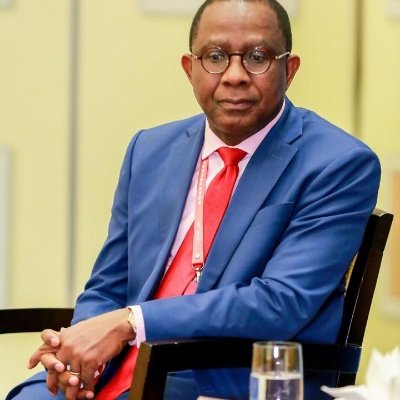To tame the growing army of unemployed youths in Nigeria, the senior special adviser to the president of the African Development Bank on industrialisation, Professor Banji Oyeleran-Oyeyinka has made critical suggestions on what Nigeria needs to do to turn the army of unemployed youths to an army of job creators.
Speaking at a recent event in Abuja, the AfDB chief said one of the major reasons Nigerian youths are roaming the streets without jobs is that Nigeria runs an educational system that is rich in theory, but lacks the practical components necessary to equip young people with the skills they need to thrive in the workplace.
According to him, “We have a large army of graduates who enter the job market each year, yet many remain unemployed or underemployed due to a lack of relevant skills.”
As a way out, he said the country must invest in technical and vocational educational training (TVET) to equip the youths with relevant skills and make them job creators.
“This is a practical way to invest in young people rather than doing “empowerment” training that still leaves them without jobs or their own businesses,” he said.
He noted that Nigeria have in place an inverted skills hierarchy of the engineering profession. “While the International Labour Organisation (ILO) recommends professional engineers 3 per cent, engineering technicians 18 per cent, engineering craftsperson 81 per cent.
“The hierarchy is the opposite in Nigeria with professional engineers 85 per cent, engineering technicians 11 per cent, and engineering craftsperson 4 per cent,” he said.
Prof. Oyelaran said China took 800 million out of poverty by focusing on Rural and peri-urban Revitalization.
According to him, “The government equipped ordinary people with TVET-type skills that gave them control over their lives not through “cash transfers” and such programmes. The once-poor became producers of goods and services not hopeless men and women waiting for palliatives.”
He said to achieve the 2063 African Agenda for industrialization, inclusive growth and sustainable development, it is necessary to modernize and strengthen TVET in Africa.
He noted that the African Development Bank (AfDB) and the International Labour Organization (ILO) collaborated to jointly analyze TVET systems in Africa and they formulated recommendations to guide increased investment in skills development and enhance stakeholder capacity to improve TVET performance based on survey results for 16 countries.
He said there is a widespread disconnect between the output of the education system and the employment market and its opportunities because people erroneously mark down technical education graduates as inferior to university graduates.
“When a nation is not building factories, skilled employment declines,” he said.
“As a matter of fact, Nigeria has been experiencing Premature Deindustrialization. This is a condition in which a country’s industrial sector declines in productivity, employment share of manufacturing, and manufacturing output before it reaches the middle-income level, with a GDP per capita of around $8000 to $10,000.
“Another important metrics of premature deindustrialization is when a country’s transition from the industrial to the service sector occurs much earlier than other countries.
“This condition shifts policy focus from tradeable sectors notably, agriculture and manufacturing; the latter generates the highest productivity.”
He recommends that the proposed TVET Reform should integrate entrepreneurship modules into the TVET curriculum to equip students with the skills needed to start their own businesses, to foster innovation and economic growth.
“We must build up graduates to start their businesses and create employment opportunities for themselves and others.”
He said the TVET should coordinate with The Nigeria Youth Entrepreneurship Investment Bank (YEIB) initiative.
“This is being set up as a pioneering institution designed to foster economic growth and job creation in the country. It is a platform bringing together relevant financial and non-financial stakeholders in support of youth entrepreneurs.”
He said the anchor investors include the Federal Government through the Ministry of Finance Incorporated, the Nigeria Sovereign Investment Authority (NSIA), and the Development Bank of Nigeria (DBN).
“The AfDB’s $100 million investment will be bolstered by an additional $25 million from DBN and $5 million from NSIA,” he said adding that YEIB will invest in early-stage and high-growth enterprises, provide grants for business development service providers, reimbursable grants to youth-led businesses, and offer risk mitigation to improve access to credit for SMEs.
The AfDB chief also recommended that government identify and finance 100 youth medium-size entrepreneurs per state through a rigorous competitive selection process that ties TVET to Agric-SME and Manufacturing SMEs financing.
“The Government’s Renewed Hope Agenda will only translate into economic development through Mass Education of our people.
“TVET is one key pillar of that. By economic development we shall ensure Peace, Prosperity and Progress for our fatherland!”


